
Major Jackson is the author of five books of poetry, including The Absurd Man (2020), Roll Deep (2015), Holding Company (2010), Hoops (2006) and Leaving Saturn (2002), which won the Cave Canem Poetry Prize for a first book of poems. His edited volumes include: Best American Poetry 2019, Renga for Obama, and Library of America’s Countee Cullen: Collected Poems.
The recipient of a Guggenheim Fellowship, he has published poems and essays in American Poetry Review, Callaloo, The New Yorker, The New York Times Book Review, Paris Review, Ploughshares, and Poetry. His edited volumes include Best American Poetry 2019 and the Collected Poems of Countee Cullen. Major Jackson lives in South Burlington, Vermont, where he is the Richard A. Dennis Professor of English and University Distinguished Professor at the University of Vermont. He serves as the Poetry Editor of The Harvard Review.
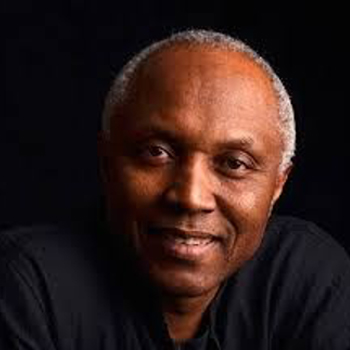
Okey Ndibe is the author of the novels Foreign Gods, Inc. and Arrows of Rain as well as a memoir, Never Look an American in the Eye (winner of the 2017 Connecticut Book Award in nonfiction).
Ndibe was founding editor of African Commentary, a publication founded by Chinua Achebe. Ndibe earned MFA and PhD degrees from the University of Massachusetts at Amherst, and has taught at various institutions, including Brown University, St. Lawrence University, Connecticut College, and the University of Lagos (as a Fulbright scholar).
His writing has appeared in the New York Times, Hartford Courant, BBC online, The Guardian (UK), Financial Times, and D La Repubblica (Italy). Website | Twitter

Julie Iromuanya is the author of Mr. and Mrs. Doctor (Coffee House Press), a finalist for the PEN/Faulkner Award, the PEN/Robert W. Bingham Prize for Debut Fiction, the Etisalat Prize for Literature (now 9 Mobile Prize for Literature), and the National Book Critics Circle John Leonard Prize for Debut Fiction. Her scholarly-critical work most recently appears in Meridians: Feminism, Race, Transnationalism, Callaloo: A Journal of African American Arts and Letters, and Afropolitan Literature as World Literature (Bloomsbury Publishing).
Iromuanya earned her B.A. at the University of Central Florida and her M.A. and Ph.D. at the University of Nebraska-Lincoln where she was a Presidential Fellow, Richard H. Larson Fellow, and award-winning teacher. She is an assistant professor in the Program in Creative Writing at the University of Chicago and affiliate faculty of the Center for the Study of Gender and Sexuality and the Center for the Study of Race, Politics, and Culture. She is at work on a second novel, A Season of Light.
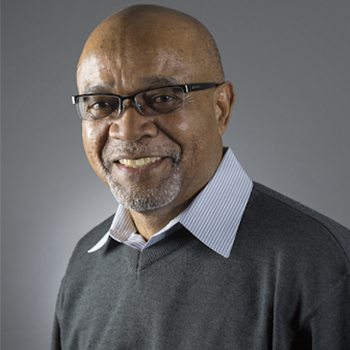
Aliko Songolo is Professor Emeritus in the Department of French & Italian and the Department of African Cultural Studies at the University of Wisconsin-Madison. His research and teaching interests are in Francophone literatures of Africa and the Caribbean, and Francophone cinemas of Africa. His current research projects investigate the question of national cinema in Francophone Africa, postcoloniality in the wake of the Négritude movement, and the complex and sometimes complicated web of relationships among African American writers and their Francophone African and Caribbean counterparts between the 1920s and the 1960s. He has published on Aimé Césaire and on a variety of African writers. He served as Chair of the Department of French & Italian, Chair of the Department of African Cultural Studies (formerly African Languages & Literature), Director of the African Studies Program, Director of the Center for Interdisciplinary French Studies, and as Associate Vice-Chancellor of Academic Affairs at the University of California-Irvine before he moved to Wisconsin. He was twice President of the African Literature Association, and President of the African Studies Association.
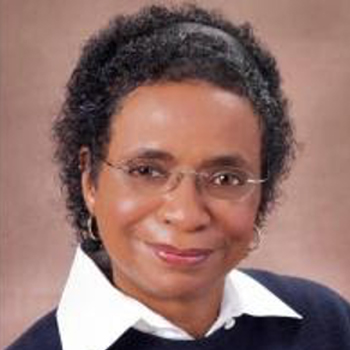
Dorothy Randall Tsuruta, PhD. Of particular significance to Dr. Tsuruta is getting to spend time with Chinua Achebe and James in 1980 during their historic first meeting at the University of Florida , Gainsville, on assignment for the Black Scholar Journal. Her article “In Dialogue To Define Aesthetics: James Baldwin and Chinua Achebe”, published in the March-April 1981 issue. Dr.Tsuruta served 3 terms as chair of Africana Studies at San Francisco State University (SFSU). She is presently working on two biographies, a book of poetry and ongoing literary interests. She serves as a judge for the annual College Language Association (CLA) Poetry contest. And she is on the Board of Directors for the National Council for Black Studies. She has co-edited special issues of The International Journal of Africana Studies, and The Western Journal of Black Studies. Her “Cultural Memory in the Works of Langston Hughes” was published in Memory and the Narrative Imagination (Bedford Press 2011).Her essay “Regal and Royal: Chicago’s Extraordinary Maud Martha,” appeared in Gwendolyn Brooks’ Maud Martha: A Critical Collection (Third World Press, 2002); Most recently she proposed a panel and presented in January 2020 at the Modern Language Association (MLA) Annual Conference, this year held in Seattle, Washington. She has also published in the MLA journal Concerns.

Eileen Julien is professor of comparative literature, French, Francophone and African Studies at Indiana University Bloomington. She teaches and publishes primarily on the literatures and cultures of Africa, the Americas and France, their historical and cultural ties and divergences. Among her publications are African Novels and the Question of Orality (1992), Travels with Mae: Scenes from a New Orleans Girlhood (2009); she is co-editor of The Locations and Dislocations of African Literature: A Dialogue Between Humanities and Social Science Scholars (2016), and Africa Regional Coordinator for Literature: A World History, forthcoming from Blackwell. She co-directed a NEH Summer Institute in 2016 (“Arts of Survival: Recasting Lives in African Cities”). Recipient of Bunting Institute, Fulbright, and Guggenheim awards, she was president of the African Literature Association (1990-91), founding director of the West African Research Center (Dakar, Senegal, 1993-95), and co-founder of the New Orléans Afrikan Film and Arts Festival (2008-2012).
EileenJulien’s teaching and research focus on multiple aspects of literature and culture in Africa and the Americas, their historical and cultural ties and divergences, and the factors of colonialism, decolonization, and contemporary political and economic processes. In the African context, she has been especially interested in the perceived tension between being “modern” and being “ourselves” and what this implies for understanding the relationship between “indigenous” or “local” resources, such as oral traditions, and contemporary forms such as the novel. The workings of gender and the diasporic consciousness or yearning that exceeds national belonging are themes that also figure in her work and teaching. In this vein, she has begun to explore most recently the distinctive culture of my birthplace, New Orleans, Louisiana.
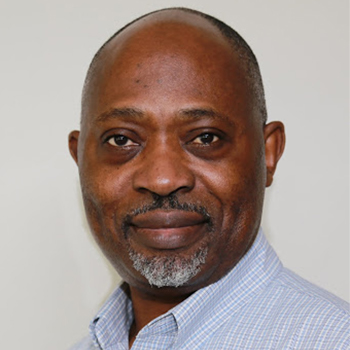
Chielozona Eze is a Professor of African and African American literature at Northeastern Illinois University, Chicago and Extraordinary Professor of English at Stellenbosch University, South Africa. He earned his PhD from Purdue University in English and Philosophy, his M.F.A., from Purdue University in Creative Writing (Fiction), MA, in Comparative Literature/German from the University of Bayreuth, Germany; his MA in Catholic Theology from University of Innsbruck, Austria, and his BA in Philosophy at St. Joseph’s seminary, Nigeria, where he graduated Magna cum laude.
He has written extensively on such topics as cosmopolitanism, empathy, human rights, social justice, etc. He is the author of Race, Decolonization, and Global Citizenship in South Africa (University of Rochester Press, 2018) and Ethics and Human Rights in Anglophone African Women’s Literature – Feminist Empathy (Palgrave Macmillan, 2016)
He has published poetry collections which include Survival Kit, Prayers to Survive Wars that Last (2019) His novella, The Trial of Robert Mugabe, was shortlisted for the 2010 Hurston/Wright Legacy Award. He is currently working on two scholarly books: Race and Social Justice in African American Literature, and The Wisdom of James Baldwin: Love, Politics and Existence in Black, and his memoir titled The Remains of my Dreams.

Agustin Lao-Montes has a Ph.D. in Sociology from the State University of New York–Binghamton. His fields of specialty include world-historical sociology and globalization, political sociology (especially social movements and the sociology of state and nationalism), social identities and social inequalities, sociology of race and ethnicity, urban sociology/community-university partnerships, African Diaspora and Latino Studies, sociology of culture and cultural studies, and contemporary theory and postcolonial critique.
1) I am also a specialist in Caribbean Studies
2) I am a member of the coordinating committee of the Afrodescendant Network of the Americas.
3) My book “Diasporic Counterpointings. Political Cartographies of Our Afroamerica” is published in Spanish by the Universidad del Externado in Colombia and an english version will be published soon.
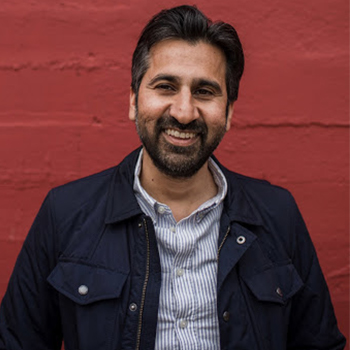
Zahir Janmohamed is a graduate student in creative writing at the University of Michigan. His articles have appeared in The New York Times, The Guardian, Foreign Policy, Guernica, and many other publications. In 2019, he was nominated for a James Beard Award for his work exploring food and race. Prior to beginning his writing career, he worked in the US Congress and at Amnesty International
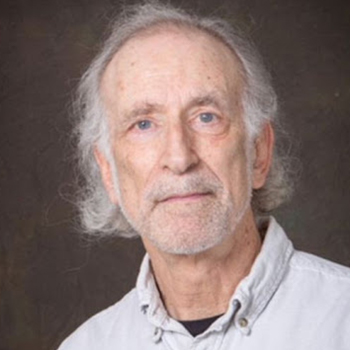
Kenneth W. Harrow is Professor of English at Michigan State University. His publications include Threshold of Change in African Literature: The Emergence of a Tradition, Less Than One and Double, and African Cinema: Postcolonial and Feminist Readings.
Kenneth W. Harrow offers a new critical approach to African cinema—one that requires that we revisit the beginnings of African filmmaking and the critical responses to which they gave rise, and that we ask what limitations they might have contained, what price was paid for the approaches then taken, and whether we are still caught in those limitations today.
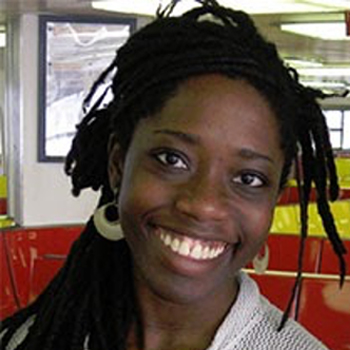
Abena Asare is Assistant Professor of Modern African Affairs & History. Her research spans questions of diaspora, human rights, and transitional justice in Africa and the African diaspora. Published in both policy-focused and academic journals, her work focuses on the importance of marginalized histories when contemplating questions of African social and political progress.
She is the author of Truth Without Reconciliation: A Human Rights History of Ghana (University of Pennsylvania Press, 2018).
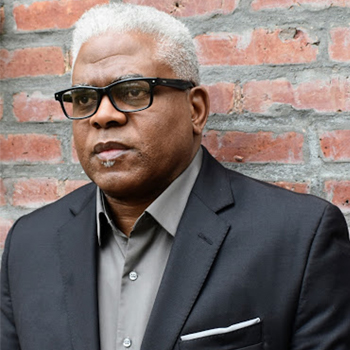
E. Stanley Richardson is an American poet and social activist.
In February of 2020 he was appointed Alachua County’s first Poet Laureate.
He is the founder and director of ARTSPEAKSgnv “Bringing Poetry & People Together” and ARTSPEAKS: “Courageous Young Voices” a non profit organization dedicated to promoting literacy, encouraging creativity, bringing awareness through Art Activism, expanding ideas and opportunity by providing a medium for expression through the Art of Poetry, Spoken Word and Storytelling.
He is the director of the North Central Florida / Alachua County, Youth Poet Laureate Program, in partnership with Urban Word NYC, and the National Youth Poet Laureate Program.
E. Stanley Richardson is the author of “Hip Hop Is Dead – Long Live Hip Hop: The Birth, Death And Resurrection Of Hip Hop Activism”, a poetry collection that “captures the visual, eclectic voice and expression of the everyday African American experience in a style and rhythm reminiscent of the Black Arts Movement.” A unique lyrical blend of Gospel, Blues, Jazz, Soul and Hip Hop poetry that testifies to the transcendent Ancestral Power and influence of African American music, its historical relationship to social struggle and to the colonial mechanisms within the dominant oppressive culture that conspire to appropriate, suppress, distort and control radical progressive African American music and art.
E. Stanley Richardson is a lifelong resident of Florida, and currently resides in the city of Alachua.

Vivian Lee Washington Filer was married to the late Delano Filer, Sr. They are parents of two sons and four grandchildren. She is a retired professor of Nursing from Santa Fe College in Gainesville, FL. She has spent her professional life working in the Gainesville area. First as a Nursing Assistant during the era of segregation followed by Nurse Clinician at Shands Teaching Hospital. After Shands she worked at Santa Fe College where she retired from in 2000. The positions she held while at Santa Fe were Professor of Nursing, Assistant Director of Nursing and Interim Director of Health Sciences. When Santa Fe College opened in 1968 as the first integrated post secondary institution in Gainesville, Filer enrolled and received an AA degree. She then obtained a BSN from the University of Florida in 1972 followed by a Masters degrees from both Nova University and the University of South Florida. Filer has been a community activist all of her adult life. She has worked with a number of civil organizations including the first integrated group of Women in the City, the Gainesville Women for Equal Rights, (GWER). Her 2017 TED talk “Lessons from my Sidewalk” can be viewed on YouTube. Ms. Filer is a member of Mt. Olive A. M. E. Church, Delta Sigma Theta Sorority Inc., Rosa Parks Quiet Courage Committee, the Santa Fe College Nursing Advisory Board, National Black Nurses Association and Greater Gainesville Black Nurses Association. Her hobbies include 60 years as a Storyteller, and singing with her sisters in an a’capella group known as the Washington Sisters.
She is Founder and CEO of the historic Cotton Club Museum and Cultural Center.

Terri L Bailey was born and raised in Gainesville, FL. This former high school dropout returned to school at 40 and obtained a BS in Elementary Education from Bethune Cookman University and an MA in English and Creative Writing from Southern New Hampshire University. A lifelong writer and storyteller, Bailey often incorporates her advocacy and organizing work into her poetry, weaving women’s empowerment and social justice issues into her spoken word performances. She also integrates the Southern folklore she grew up with as well as African spirituality in her stories and poems. Her three proudest moments as a writer include winning first prize in the short story competition at Bethune Cookman University (2010) for The Journey, a modern, Afrocentric adaptation of Dante’s Divine Comedy, performing at the Zora Neale Hurston Festival with the poetry collective If You Ask A Sistah and most recently being first runner up for Alachua County’s first Poet Laureate. For the past few years, she has been working on When the Witches Ride You: A Collection of Southern Afrofuturistic Speculative Fiction and Black Horror and has started a Patreon page in hopes of raising funds to cover publishing expenses by the end of the year.
Terri is the Founder of Bailey Learning and Arts Collective (BLAAC -pronounced black), a nonprofit organization that focusses on building socially responsible communities and leaders through grassroots organizing, community education, and the arts. BLAAC’s newest program, The Queens Room, offers empowerment tools such as self-care plan development, EFT/TFT (tapping) services, and writing to heal workshops. She hopes to inspire women by sharing the stories of how she survived poverty, domestic violence, and sexual abuse.
Terri Bailey is a Yaya and Apetebii Ifa and feels the presence of African spirituality in her life is the grace that continues to save and nurture her. She lives in Gainesville, FL with her husband, artist Turbado Marabou and daughter Aaliyah.
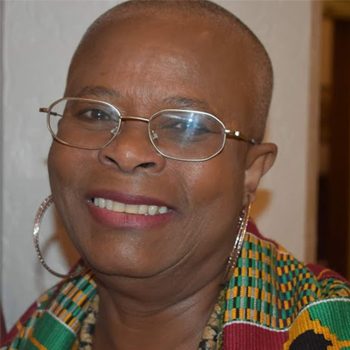
Naana Banyiwa Horne, Ph.D. (Nana Ansomaa III) is a Professor of English, Africana and Gender Studies who has held teaching positions in universities in Ghana and the United States and has published scholarly as well as creative works. She has two published collections of poetry and two more awaiting publication, including a short story, “Payback,” in Payback and Other Stories, edited by Tomi Adeaga. Horne is currently working on a book on Gender in Ghanaian Literature and a collection of short stories. A Twidan Abusua Gyasi Hemmaa of Akamufie, her life and 2010 enstoolment at Akwamufie are documented in the film Chosen, by the preeminent African documentary filmmaker, Jean-Marie Teno.
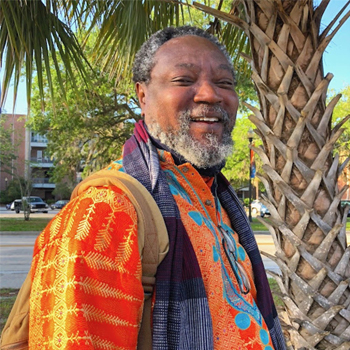
Kole Ade Odutola is a Yoruba lecturer in the Department of Languages, Literatures& Cultures. Kole’s academic journey has seen him completing B.Sc (Hons.) in Botany in 1984 at the University of Benin, Nigeria. In 1998, fourteen years after, he graduated with his Masters Degree in TV/Video for development at the University of Reading, UK. Adding another dimension to his studies in communication, he enrolled at Ithaca College for a Masters in Organizational Communication, Learning& Design (OCLD), which he completed in 2000. In January 2002 he was accepted into the School of Communication, Information and Library Science for a Ph.D. in Media Studies and completed it.
Kole has presented conference papers in different parts of the world. His Masters degree thesis on the participatory use of video is wildly circulated on development oriented websites. He presented a paper; Understanding the Media in Nigeria at The British Council Training Workshop on Development Information Management; September 9 to 13, 1996 at the Conference Centre University of Ibadan, Oyo State, Nigeria. In 2008, he was invited to the 12th Poetry festival which took place in Durban South Africa. In 2009, he attended and he was one of the invited discussants at the CTA annual seminar in Brussels, Belgium. In December 2009, he was one of the invited participants at the Welcome Trust “Telling Stories for public engagement workshop; which took place in Bangalore, India.”
